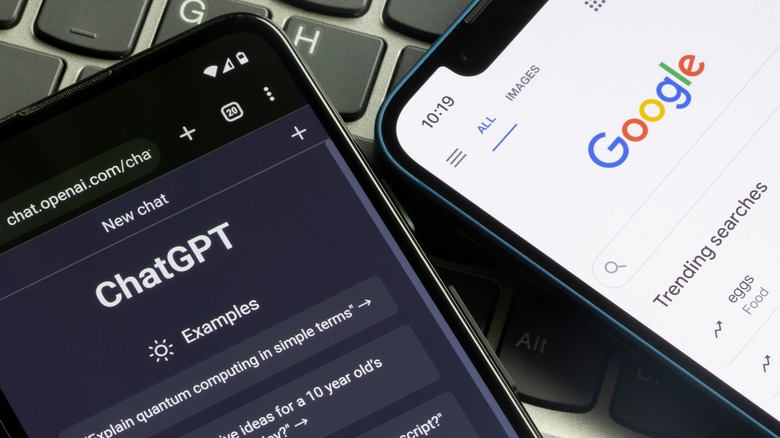Google CEO Confirms Conversational AI Is Coming To Search
Amidst concerns of Google's first AI ChatBot —Bard — falling behind ChatGPT, in terms of sheer capability, we now have official confirmation from Google CEO Sundar Pichai about the company planning major AI-focused updates to Google Search. Sundar detailed Google's vision for conversational artificial intelligence in a recent interview with the Wall Street Journal, in which he also confirmed that people would soon be able to "ask questions to Google" and seek contextual answers from the search engine. The news comes weeks after Google confirmed that it intends to bring AI capabilities to several of its core products, including Google Maps, Google Translate, and Google Messages.
Having been around for over 24 years, Google Search continues to be the world's most widely used search engine, with an estimated 75 billion visits in March 2023 alone. Microsoft's Bing — the chief competitor to Google — has remained on the sidelines for several years, holding on to a little over 8% of the global desktop search engine market. However, the massive advances made in the field of conversational AI are threatening to finally disrupt this status quo — and Google isn't exactly thrilled at the prospect.
While search algorithms have improved over the years, most of these changes were only intended to deliver the best search results. However, the user experience of searching and finding information has remained unchanged all these years. The arrival of OpenAI's ChatGPT has arguably played the role of a disruptor in the segment, with an increasing number of people beginning to seek more contextual answers to their queries rather than look for mere keyword-based results.
Bing has gained massively from ChatGPT integration
Thanks to Microsoft's association with OpenAI, Microsoft was able to bring conversational AI to its search engine before anyone else. Based on what we know so far, this move alone has done wonders for the platform. In the 30 days since Bing integrated conversational AI features with its search tool, it was able to breach 100 million daily active users for the first time since its inception. In addition, engagement levels on the platform were at an all-time high, with more than 1/3rd of Bing users using its conversational features on a daily basis. While things are certainly looking up for Bing, it remains to be seen if the platform can sustain these engagement levels in the long term.
After 30 days, a few stats on new Bing engagement:
- 45M total chats
- 1/3 of daily preview users Chat daily
- 1/3 of preview users are brand new to Bing
- Bing (new and old) passes 100M DAU – and yes we know we are still a small, https://t.co/3ntxy0oq63...— Yusuf Mehdi (@yusuf_i_mehdi) March 9, 2023
Even as Bing continues to bask in the glory of undivided media attention, there is a general consensus among tech enthusiasts about the fact that Google was completely blindsided by competitors in the recent AI push.
For a long time, Google was thought to be the world leader in developing algorithms called large language models (LLMs) — the technology that powers modern AI chatbots. However, unlike OpenAI, which went for the kill, Google hesitated to bring these powerful programs to consumers — probably because of its controversial nature — and prospective legal and ethical concerns.
While it is still early days for chatbots and conversational AI technology in general, it would be interesting to see the long-term ramifications of Google's delay in entering the space. That being said, Sundar Pichai did not precisely reveal how long it would take for the company to bring conversational AI capabilities to Google Search.

